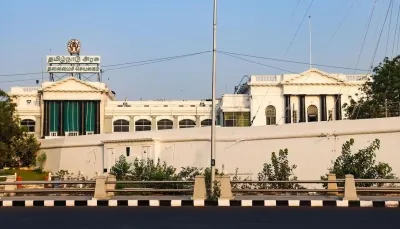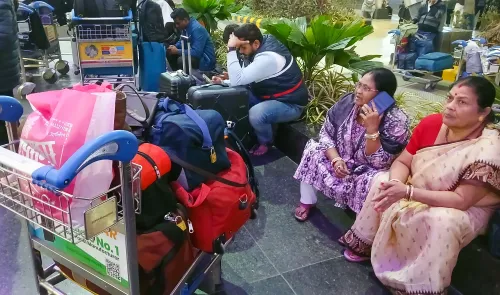Why Are Teachers' Associations Opposing the TN Private Universities Amendment Bill?

Synopsis
Key Takeaways
- Teachers' associations vehemently oppose the amendment.
- Concerns over privatization of government-aided colleges.
- Potential rise in tuition fees for students.
- Risk of losing social justice measures like scholarships.
- Call for the government to retract the amendment.
Chennai, Oct 19 (NationPress) The Madurai Kamaraj, Manonmaniam Sundaranar, Mother Teresa, Alagappa, Tamil Nadu Teachers’ Education and Anna University Teachers Association (MUTA) expressed strong disapproval of the Tamil Nadu Private Universities (Amendment) Bill, which was passed in the Assembly on October 17. They labeled it a "threat to free education and social justice".
In an official statement, MUTA asserted that although the original 2019 Act permitted private universities, this recent amendment poses a "far more dangerous" risk.
The educators accused the government of attempting to transition government-aided colleges—which presently receive state funding—into private universities, thus "transforming public property into private assets".
The MUTA cautioned that this initiative would significantly jeopardize the free education system, which enables students from economically disadvantaged and marginalized communities to access government-aided institutions on equal footing with government colleges.
They stated, "This Bill will deprive students of the chance to study under the free education policy and propel higher education out of reach for the underprivileged."
The association further warned that the amendment could convert institutions established by philanthropists for public benefit into profit-driven enterprises.
"On one hand, free education will be eliminated, while on the other, tuition fees will skyrocket, making higher education an unattainable aspiration. Admission based on reservation, scholarships, and other social justice initiatives will disappear," MUTA cautioned, emphasizing that this policy would "permanently extinguish social justice."
MUTA also expressed concerns regarding a lack of administrative transparency, the erosion of merit-based admissions, the legitimization of exorbitant fees, the discontinuation of academic programs for profit, and the decline in the quality of higher education in the state.
They voiced apprehensions about teachers and staff potentially losing their hard-won rights and benefits.
"Appointments will be made at the discretion of private managements without regulation, jeopardizing job security," they stated.
The organization noted that the Private College Regulation Act of 1976, which governs the service conditions of faculty and staff, would become obsolete. Benefits such as medical and earned leave, pensions, health insurance, and direct salary payments could be revoked, they added. They also condemned the possible transfer of infrastructure and intellectual property—developed with public funds and through teachers’ research—to private entities.
MUTA characterized the action as an "unacceptable atrocity" and urged the state government to retract the amendment for the benefit of students, educators, and society as a whole.










